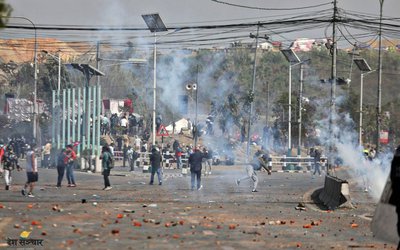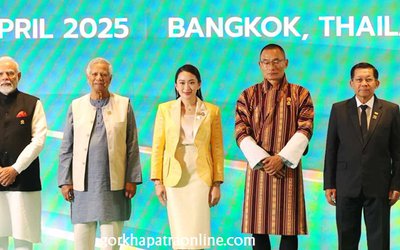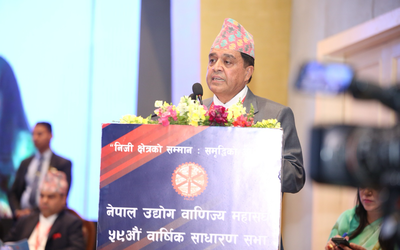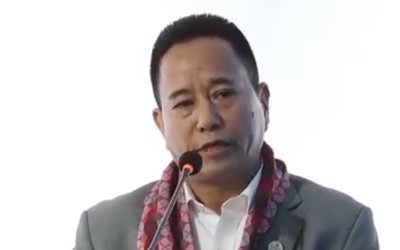
Although Nepal is almost over 250 years old as a state, its institutional memory is so poor that it always behaves immaturely in handling the internal and external affairs. Like an individual, the actions of a state also get mature if they are backed by its own memory.
In his book, Rule and Misrule of Rana, DamanSumsher writes how he was helpless when late Indian Prime Minister Jawaharlal Nehru asked him to fulfill the commitment made by Padma SumsherRana.
Similarly, late BP Koirala in his Atmabirtant reveals how Ministry of Home Affairs looked after revolution of 1951with no official documents, papers and records. When Koirala asked about the state of affairs to his secretary, he was given the answer that the matter was solely handled by Babar SumsherRana on his personal whim and capacity.
This legacy of running the state affairs on individual whim has continued for centuries in Nepal. State affairs is a matter of individual rulers rather than the institutions.
After the political change of 1951, the process of keeping the records of state affairs began, however, they are not maintained well. Once Nepal was declared a republic, officials buried all the documents, memories, promises made by monarchs on behalf of state of Nepal.
As political leaders termed new Nepal, old documents and commitments were considered useless. That is where the problems lie in handling external and internal matters. There is almost a mess now as the state is handling its internal and external affairs, and it is going from bad to worse.
Take a recent example. Public Accounts Committee of Legislature Parliament summoned the District Attorney General of Kathmandu to clarify his decision not to prosecute an alleged gold smuggler.
According to law and constitution, attorney general is the final authority to decide whether to prosecute in the case or not. As Attorney General is accountable to the government and he has nothing to do with Legislature Parliament, PAC as an institution cannot summon district attorney. However, PAC chair, on personal capacity, issued the order.
The recent direction of Commission of Investigation of Abuse of Authority (CIAA) to the government to release the relief package to the earthquake victims in seven days is another example of how Nepal’s state affairs are running.
Although Constitution of Nepal has stated that the executive power lies with the cabinet and it is accountable to the Legislature Parliament, the direction of CIAA to the cabinet is against the spirit of constitution.
External Affairs
The rule of individual whim does not end with internal affairs only. There is so much confusion about handling the external relations. At a time when Nepal-India relations are passing through a difficult phase, leaders of Nepalese political parties have their own personal prescriptions to bring the course back on right track.
At a time when the Indian state is coming up with the recorded state memory of meeting with Nepalese political leaders and their commitments, Nepalese leaders are prescribing solutions on the individual whims to deal with the external affairs.
If the recent views of Prime Minister K.P. Sharma Oli to send an all-party team to India to talk on bilateral relations are any indications, they show the poor state of handling Nepal’s affairs.
As a prime minister, Oli represents the state of Nepal and what he can do is to take the initiative for an all-party consensus. It is a sheer joke to send an all-party team to deal with the foreign affairs on behalf of him.
The strange thing is that Nepali Congress, which has governed Nepal several times in the past, has not reacted on such a proposal from Prime Minister Oli.
Indian state authorities have been repeatedly saying that Nepal needs to fulfill its commitments given to India. As most of Nepali leaders take their commitments personally as non-committal, the Indian state feels betrayed.
In recent debates in the Indian Parliament, Indian government has shown how matured states act. Indian Minister of External Affairs SuhsmaSwaraj furnished all the details of the meeting with Nepalese leaders.
As Nepalese leaders can personally forget the commitments they have made with Indian Prime Minister NarendraModi, Indian state can keep it in the record or state memory. As Nepal’s leaders made all the commitments on personal whims in matters state affairs, it has created the present crisis and the country lost its reliability.
Given the incapability of state leaders to handle the internal state of affairs and external affairs, Nepal is losing its own credibility at domestic front as well as bilateral level.
As Nepal’s state affairs are conducted on personal whim rather than the backing of institutional memory and institutional capability, it is creating confusing scenario in internal affairs and with external affairs.
Internally, all the Nepalese institutions including legislature, judiciary and executive and executive branches work on the individual whims rather than the institutional memory and capability.
Handling the external affairs personally with other countries will have little impact. As Nepal and India have thousands of interactions every day, any shortcoming can create more complications. This is what Nepal is facing today.
Why the prime minister does not speak like an institution and instead prefers to speak on his personal knowledge and personal impression is only a conjecture. Maybe, he does not have enough support of the institution of prime minister because no prime minister before him had worked in earnest to create the institution of prime minister. Whatever be the reason, the need is there to distinguish between the state and individual speaking and acting on matters of internal and external affairs.

Keshab Poudel
Poudel is the editor of New Spotlight Magazine.
- POLITICAL VIOLENCE: Culture of Impunity
- Apr 11, 2025
- PM OLI MEETS PM MODI: No Progress
- Apr 09, 2025
- PM OLI’S THAILAND VISIT: Flip Flop
- Apr 08, 2025
- FM Dr. Deuba’s India Visit: Mission Aborted
- Mar 26, 2025
- AMBASSADOR MAEDA TORU: Warm Regards
- Mar 24, 2025















